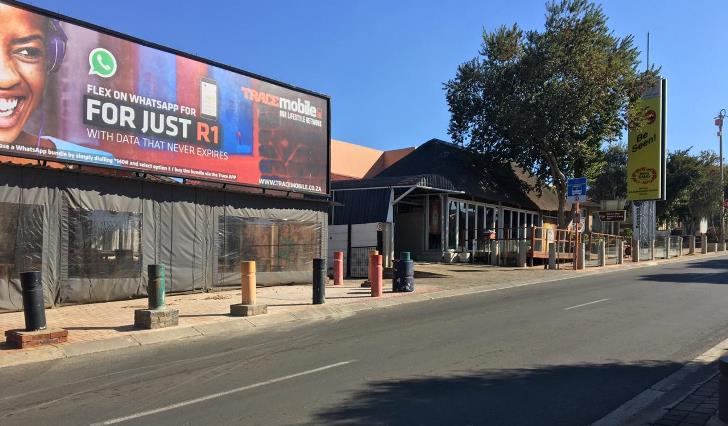The spread of COVID-19 has had a drastic impact on the tourism sector, with some small businesses forced to shut their doors. Small tour operators are looking at other ways to sustain themselves.
In Soweto, the popular Vilakazi Street, which is the heartbeat of tourism in the township, resembles a deserted town.
Bicycles and tuk tuks that were used to transport tourists are now being used for deliveries.
Resident Palesa Mamaregane says it is surprising and sad to see such a lovely place so lonely and abandoned.
“Vilakazi Street, which happens to be the hotspot and hustle and bustle of Soweto, now resembles something similar to a ghost town. Those restaurants stand tall and pretty with the wonderful and beautiful infrastructure. But have nothing to hold except Uber drivers and that are there to pick up take away and delivery. It’s quiet surprising and sad to see such a lovely place so lonely and so abandoned,” says Mamaregane.
“It then makes you realise that some of these places are nothing without the colourful and lively people that visit the restaurants religiously. It’s quite a shock to see the way it is. In all my years of living here, I’ve never seen anything quite like it.”
Pictures by Bafana Khumalo
Just a few kilometres from the Nelson Mandela Museum and the Hector Peterson Memorial Site is Lebo Soweto Backpackers. The establishment consists of a lodge, self-catering guesthouse and campsite, and offers walking and bicycle tours, including storytelling and food tours.
Owner Lebo Malepa says the lockdown did not just affect his businesses, but also those that rely on his business for their survival.
“Just before the lockdown, we were in high spirits. By January, we had about 80% of the bookings, up to December. People paid up front … 100% payment around that time. When we started understanding, seeing the travel ban internationally, we became very worried because we were going to lose our market because 80% of our customers are international customers, mostly from Europe and America and Australia. As the panic started to hit the world, people started to cancel, they asked for the refund which is 10% or the 50 to 100% that they have paid.”
Thinking outside the box
With 30 staff members, Lebo was forced to close his doors and employees were laid-off. He says he has been pushed to think out of the box and find other means of generating an income while still giving back to the community that has helped his business thrive.
He says they started doing masks and giving them to the elderly.
“We have a food garden turned from a dump site. We saw that helping the community, people can buy or identify families that need. We have chickens. We have been breeding. When we realised it’s not enough because of the running costs, we had to close down the internet, our accounts and we thought of crowd funding and it’s been helping us. We are looking at taking essential workers and if the peak of the virus comes, we can be able to turn our guesthouse into a quarantine site. We are very worried that the business might die and we might not be able to revive it. We would have to start afresh and bring prices down.”
In the video below, Gauteng projects 2-million job losses as a result of COVID-19 impact:
Ayanda Kela, owner of Zaza’s Guesthouse and Spa in Pimville, was also expecting international guests for the peak season.
Kela says for a business that was booming before lockdown, it has been tough as she battles to find innovative ways to try and keep it afloat.
Head of Destination Promotion and Marketing at the Gauteng Tourism Authority,Barba Gaoganediwe, says tourism is the lifeblood of many micro and small enterprises. He says the spread of COVID-19 has had a drastic and devastating impact on the economy. However, it has also provided some businesses with new opportunities.
“We have seen, however, some of our restaurants and township businesses re-purposing their offering by, offering delivery services and collection for food. Some of our tour operators are using shuttle services to transport health workers and provide companies with safe and secure transport for their employees.”
The job losses in the tourism industry have been unprecedented, with revenue dropping, companies unable to service their debt and small business shutting their doors for good. Government has however came up with several measures to cushion the companies.

Loading…
On Sunday, Minister of Small Business Development, Khumbudzo Ntshavheni, announced a second-wave of support programmes for informal, micro and small enterprises, which include cooperatives based in townships and villages. The programmes are in addition to the Spaza Support Scheme initially implemented.











